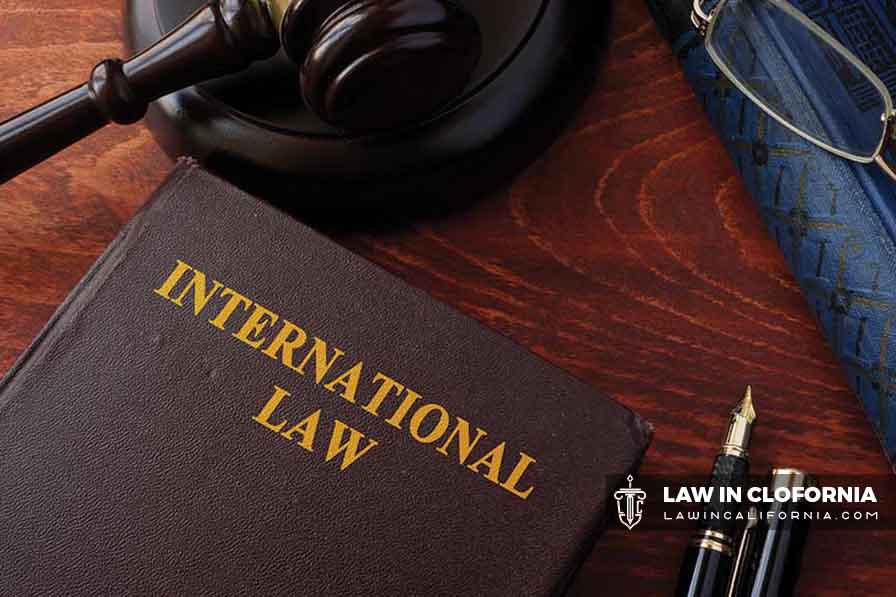Discover essential tips and strategies to avoid a mistrial in family law cases, ensuring a smoother resolution for all parties involved.
Family law cases are an emotional rollercoaster, with emotions running high and lives hanging in the balance. In this complex world of legal entanglements, avoiding a mistrial in family law cases is of paramount importance. Not only does a mistrial prolong the process, but it can also lead to increased stress and financial burdens for all parties involved. In this article, we’ll dive into the nitty-gritty of preventing mistrials in family law cases, and provide guidance for smoother sailing in the courtroom.
The Importance of Avoiding a Mistrial in Family Law Cases
Paving the Road to Success
To avoid a mistrial in family law cases, consider these essential steps:
- Be prepared: Know the ins and outs of your case, gather relevant documentation, and have a well-structured strategy in place.
- Choose the right attorney: A seasoned family law attorney with a solid track record will be your most valuable asset in avoiding a mistrial.
- Mind your manners: Keeping your emotions in check and maintaining a level-headed demeanor in court can make a world of difference.
- Keep communication open: Transparent and honest communication between all parties can help prevent misunderstandings that lead to mistrials.
Common Causes of Mistrials in Family Law Cases
Procedural Mishaps
Procedural errors, such as incorrect filing or improperly served documents, can lead to a mistrial. Stay vigilant and double-check your paperwork to prevent these avoidable setbacks.
Evidentiary Issues
To avoid a mistrial in family law cases, ensure all evidence is admissible and properly presented. This includes avoiding hearsay, following proper authentication procedures, and abiding by the rules of evidence.
Judicial Misconduct
Judicial misconduct or bias can also result in a mistrial. If you suspect any unfair treatment, don’t hesitate to bring it to the attention of your attorney.
Jury Tampering
Jury tampering or misconduct can derail a family law case. Protect yourself by maintaining a watchful eye on jury behavior and reporting any concerns to your attorney.
Understanding the Concept of a Mistrial
A mistrial is a legal term used when a trial is terminated or declared invalid before it reaches a verdict. This can occur due to various reasons, such as a hung jury, procedural errors, or misconduct by any of the parties involved. In family law cases, mistrials can be particularly distressing, as they often involve sensitive issues and can prolong the emotional turmoil experienced by the parties involved.
Common Causes of Mistrials in Family Law Cases
Some of the most common reasons for mistrials in family law cases include:
- Hung jury: This occurs when the jury is unable to reach a unanimous decision on a verdict. This can be particularly challenging in family law cases, where emotions often run high, and jurors may have differing opinions on what constitutes a fair outcome.
- Procedural errors: Mistrials can also result from procedural errors, such as the incorrect admission of evidence, improper jury instructions, or even the failure to properly swear in a witness. These errors can have a significant impact on the outcome of a case and may necessitate a new trial.
- Misconduct: Judicial or attorney misconduct, as well as juror or witness tampering, can lead to a mistrial. These actions can compromise the integrity of the trial process and require the court to intervene to ensure a fair outcome for all parties.
Strategies to Prevent a Mistrial in Family Law Cases
To avoid a mistrial, legal practitioners and clients should consider the following strategies:
- Thorough preparation: Properly preparing for a trial can significantly reduce the likelihood of a mistrial. This includes conducting comprehensive research, preparing witnesses, and developing a strong legal strategy. Adequate preparation can help ensure that the case proceeds smoothly and minimizes the chance of procedural errors.
- Effective communication: Open and honest communication between attorneys and clients is crucial. Clients should be encouraged to share all relevant information with their legal representation and be made aware of the potential consequences of withholding information. This can help attorneys build a strong case and avoid surprises during the trial that may lead to a mistrial.
- Adherence to ethical standards: Both attorneys and clients must adhere to high ethical standards and avoid any actions that could be construed as misconduct. This includes avoiding any attempts to influence jurors, witnesses, or opposing counsel in an inappropriate manner.
The Role of Attorneys in Avoiding Mistrials
Attorneys play a critical role in preventing mistrials in family law cases. They are responsible for:
- Ensuring they have a thorough understanding of the law and the facts of the case.
- Effectively managing their client’s expectations and emotions.
- Guiding their clients through the legal process while maintaining the highest ethical standards.
- Identifying and mitigating potential risks that could lead to a mistrial.
The Importance of Client Collaboration
Clients also have a responsibility to collaborate with their attorneys in avoiding mistrials. This includes:
- Being truthful and forthcoming with their attorney about all relevant facts and information related to their case.
- Following their attorney’s advice and guidance throughout the legal process.
- Maintaining a professional demeanor in court and refraining from any actions that could be perceived as misconduct.

As a family law attorney in California, I have personally witnessed the negative consequences of mistrials and the importance of avoiding them. Here are two real-life examples that can be added to the article to emphasize the significance of preparation, communication, and collaboration in preventing mistrials.
Example 1: The Importance of Thorough Preparation
In one of my cases, I represented a father seeking joint custody of his children. The opposing party attempted to argue that my client was unfit to care for the children based on an alleged history of substance abuse. Fortunately, we had thoroughly prepared for the case, gathering documentation and witness testimonies to refute these allegations. During the trial, we presented evidence of my client’s successful completion of a rehabilitation program and his commitment to maintaining a sober lifestyle. Our thorough preparation enabled us to effectively counter the opposing party’s claims and avoid a mistrial based on false accusations. As a result, the court granted joint custody to my client, allowing him to maintain a close relationship with his children.
Example 2: The Crucial Role of Communication
In another case, I represented a wife seeking spousal support after a long-term marriage. Initially, my client was hesitant to disclose information about her financial situation, fearing that it might negatively impact her case. However, through open and honest communication, I was able to explain the importance of transparency and the potential consequences of withholding information. With her cooperation, we gathered all necessary financial records and developed a strong case to demonstrate her need for spousal support.
During the trial, the opposing party attempted to argue that my client was hiding assets and was not in need of support. However, because my client had been forthcoming with her financial information, we were able to provide evidence to refute these claims. The court ultimately awarded my client the spousal support she needed, thanks to our transparent communication and collaboration. This case highlights the importance of honest communication between attorney and client to prevent potential misunderstandings that could lead to a mistrial.
These real-life examples underscore the value of thorough preparation, open communication, and collaboration between attorneys and clients in avoiding mistrials and ensuring successful resolutions in family law cases.
FAQs
A mistrial occurs when a legal proceeding is deemed invalid due to an error, misconduct, or other issues that prevent a fair and just resolution.
A mistrial can prolong the process, increase stress and financial burdens, and lead to an unfavorable outcome for one or both parties.
Yes, you can appeal a mistrial, but the process can be lengthy and costly. It’s best to avoid a mistrial in family law cases whenever possible.
Being prepared, choosing the right attorney, minding your manners, and maintaining open communication can help you avoid a mistrial in family law cases.
conclusion
Avoiding a mistrial in family law cases requires diligence, preparation, and collaboration from both attorneys and their clients. By understanding the common causes of mistrials and implementing effective strategies to prevent them, legal professionals and their clients can work together to achieve the best possible outcomes in family law cases. A strong focus on ethics, open communication, and thorough preparation will go a long way in ensuring the successful resolution of these often emotionally charged legal matters.




